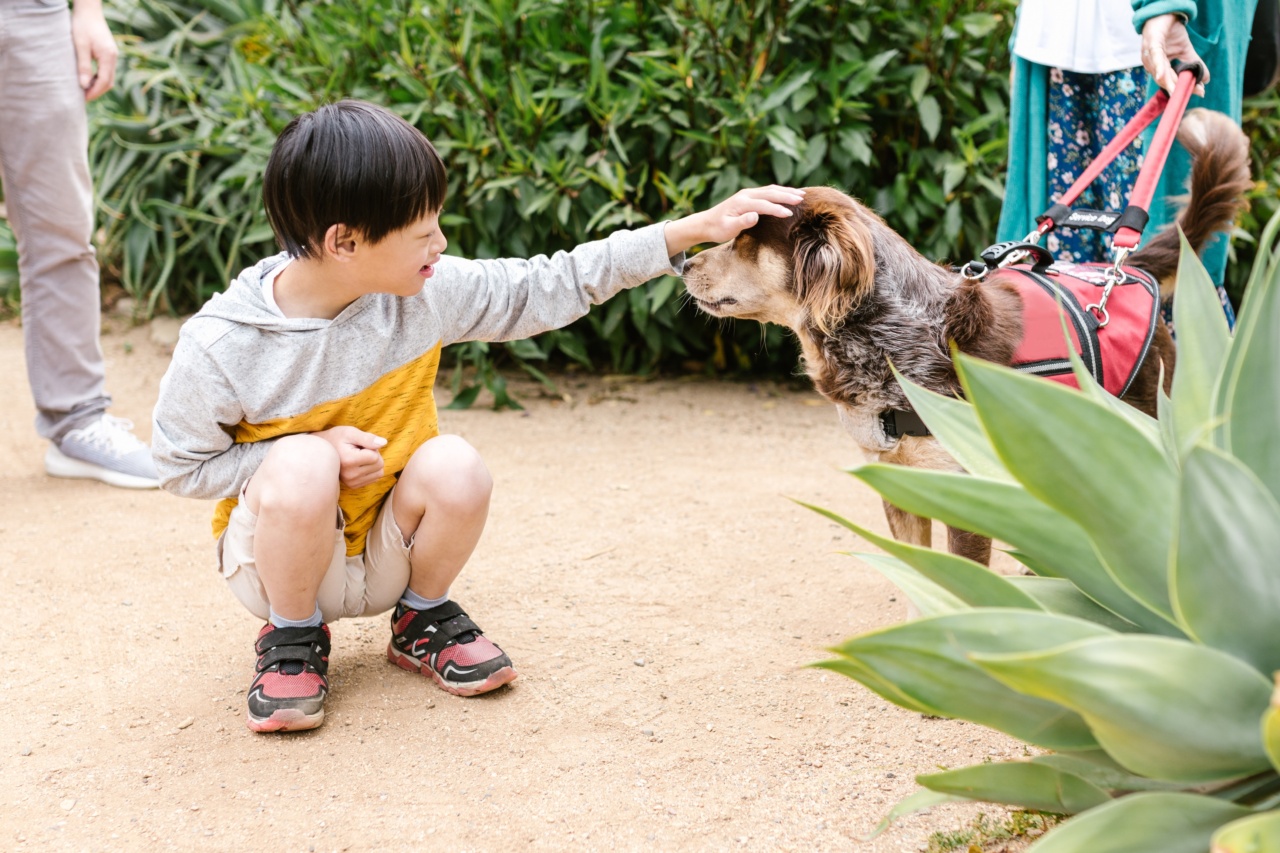Autism Spectrum Disorder (ASD) is a developmental disorder that affects how a person behaves, interacts with others, and processes information.
It is a lifelong condition that typically begins in early childhood and can be diagnosed as early as 2 years old. ASD is a spectrum disorder, meaning that each person with autism has a unique set of strengths and challenges.
The Benefits of Animal Companionship for Individuals with Autism
Many individuals with autism find solace, comfort, and joy in the companionship of animals. In recent years, there has been a growing body of research that highlights the various benefits of animal companionship for individuals with autism.
Here are some key advantages:.
1. Emotional Support
Animals, especially dogs and cats, can provide emotional support to individuals with autism. They offer unconditional love and acceptance, which can be particularly valuable for those who struggle with social interactions.
The presence of a loyal companion can help reduce feelings of loneliness, anxiety, and stress.
2. Improved Social Skills
Animals can serve as a bridge for individuals with autism to improve their social skills. Interacting with animals can be less overwhelming and intimidating than interacting with people.
This can encourage individuals with autism to engage in social interactions, such as petting, playing, or training their animal companions, which in turn can help develop their social skills.
3. Sensory Regulation
Many individuals with autism have sensory sensitivities and may be overwhelmed by loud noises, bright lights, or certain textures. Animals, such as therapy dogs, can provide a calming and soothing presence.
The tactile sensations of petting an animal’s fur or feeling their gentle touch can help individuals with autism regulate their sensory experiences and find comfort.
4. Increased Empathy
The presence of animals can help individuals with autism develop and express empathy. Caring for an animal companion requires understanding their needs, feelings, and non-verbal cues.
This can contribute to the development of empathy and compassion, as individuals with autism learn to recognize and respond to the needs of their animal companions.
5. Improved Communication
Animals can also facilitate improved communication skills in individuals with autism. Many children with autism struggle with verbal communication, but may find it easier to express themselves non-verbally to animals.
This can include gestures, body language, and simply spending time in the presence of an animal companion, which can enhance communication skills overall.
6. Reduced Anxiety and Aggression
Pets, particularly dogs, have been shown to reduce feelings of anxiety and aggression in individuals with autism. The presence of a calm and supportive animal can help alleviate stress and frustration.
Additionally, the responsibility of caring for an animal companion can provide a sense of routine and purpose, which can further reduce anxiety and aggression.
7. Increased Physical Activity
Having an animal companion often encourages physical activity. Dogs, for example, require regular exercise in the form of walks or playtime. This can benefit individuals with autism by promoting physical fitness and overall well-being.
Regular physical activity has also been linked to improved mood and reduced symptoms of anxiety and depression.
8. Improved Self-Esteem
Animal companionship has been shown to improve self-esteem in individuals with autism. Animals provide unconditional love and acceptance, which can boost individuals’ confidence and sense of self-worth.
Moreover, the responsibility of taking care of an animal companion can empower individuals with a sense of purpose and accomplishment.
9. Therapeutic Outcomes
Animal-assisted therapy is a recognized therapeutic approach for individuals with autism.
Working with therapy animals, such as specially trained dogs or horses, can have a range of therapeutic benefits, including improved social skills, increased empathy, and reduced anxiety. Animal-assisted therapy can be particularly effective when combined with other interventions and treatments.
10. Companionship and Unconditional Love
Perhaps one of the most significant benefits of animal companionship for individuals with autism is the companionship and unconditional love they receive.
Animals are non-judgmental, patient, and accepting, providing a deep connection that can be transformative for individuals with autism.
Conclusion
For individuals with autism, the benefits of animal companionship are numerous.
From emotional support and improved social skills to sensory regulation and increased empathy, the presence of animal companions can have a profound impact on the lives of individuals with autism. Whether it’s a therapy dog, a cat, or any other beloved pet, the bond between humans and animals can be a source of joy, comfort, and growth for those with autism.































